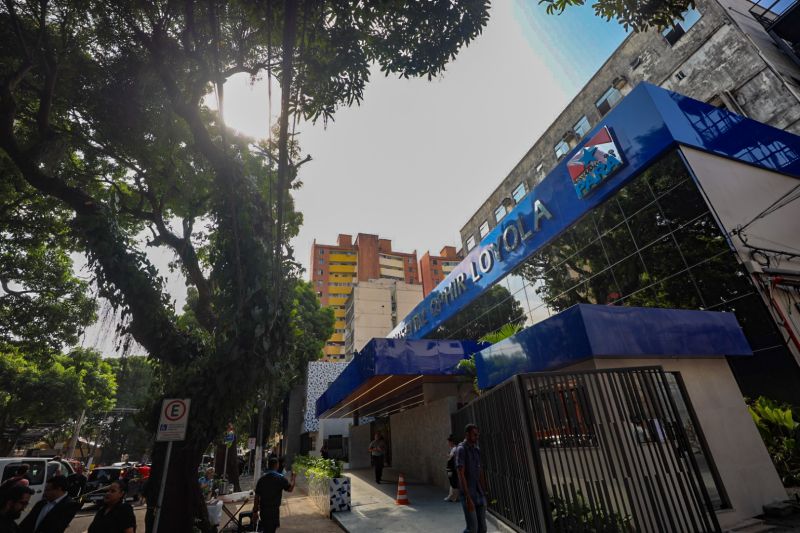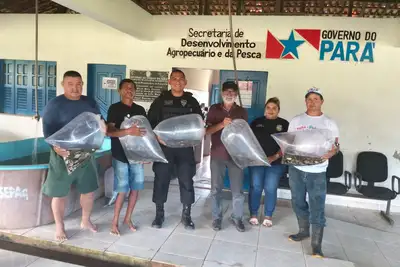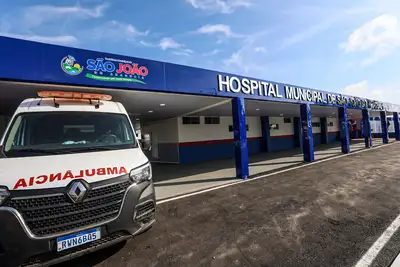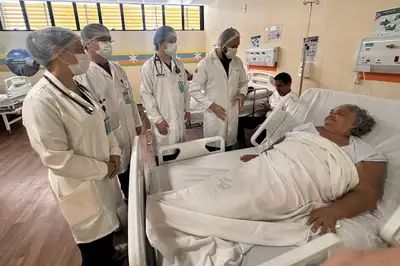National Cancer Combat Day reinforces the importance of prevention and early diagnosis in Pará
In Pará, Sespa works in an integrated manner to expand access to services and ensure specialized care at all stages of the oncology patient care line.
At 48 years old, Nilvânia Melo discovered she had breast cancer and underwent all her treatment at the Ophir Loyola Hospital in Belém. The support she received from the professionals, according to her, was fundamental to achieving a cure. “I had a mastectomy at Ophir Loyola and was very well accompanied. At the same moment I had my breast removed, a breast implant was done on the right side, and I was well assisted at all times, even though my surgery took place during the pandemic,” she stated.
Daniela Santos, mother of little Elias, accompanied her son's treatment, who was diagnosed in 2023 with malignant neoplasm in the brain. The treatment at the Octávio Lobo Children's Oncology Hospital in Belém lasted for eight months, and currently, the boy needs to return to the endocrinologist to monitor some sequelae of the disease. “To this day, he is still followed up there, and the people always strive to give their best. So, I am very grateful to the hospital team, all of them, doctors, nurses, technicians, and even the cleaning staff. It’s a big family there with whom we lived. And, I can only thank for everything.”
Established by the Ministry of Health, National Cancer Combat Day, celebrated annually on November 27, aims to raise awareness among the population about the importance of prevention, early diagnosis, and access to appropriate treatment, and also highlights the increase in the number of cases across the country. In Pará, the date reinforces the ongoing work carried out by the state oncology network, coordinated by the State Department of Public Health (Sespa), which operates in an integrated manner to expand access to services and ensure specialized care at all stages of the oncology patient care line.
Structure and care in Pará - Sespa emphasizes that high-complexity treatment through the Unified Health System (SUS) is offered in strategic units distributed throughout the State. In Belém, care is provided at the Ophir Loyola Hospital and the Barros Barreto University Hospital. In the northeastern region of Pará, the Regional Hospital of Castanhal supports cases that require specialized follow-up, and in other regions are the Regional Hospital of Baixo Amazonas (HRBA) in Santarém; the Regional Hospital of Tucuruí; and the Regional Hospital of Southeast Pará “Dr. Geraldo Veloso” in Marabá.
“Pará has a solid network of high complexity, distributed across different regions of the State. The flow is organized to ensure that the patient is referred appropriately according to the severity and need for specialized care,” said the state coordinator of Oncology at Sespa, Patrícia Martins.
These units make up the oncology reference network and receive patients referred by Primary Care, polyclinics, and specialized centers, according to the Medium and High Complexity Access Protocol in Oncology, which organizes the flow and ensures timely care.
Profile and prevention - In Pará, in 2023, 9,367 cases of cancer were recorded, followed by 11,065 in 2024 and 5,520 so far in 2025. Cases among women are still the majority, but women are also the ones who most often achieve early diagnoses.
The most prevalent cancers — skin, breast, cervical, prostate, stomach, colon and rectum, and lung — have intensified prevention actions throughout the year through national and state campaigns. Sespa emphasizes that many of these tumors can be prevented with simple and routine care, such as:
• protection against excessive sun exposure;
• regular physical activity;
• healthy eating and reduction of ultra-processed food consumption;
• quitting smoking and reducing alcohol consumption;
• undergoing preventive exams according to age and risk factors;
• vaccination against HPV for girls and boys aged 9 to 19, which prevents cervical, penile, oral, and anal canal cancers.
These measures, combined with attention to changes in the body and persistent signs, are essential to reduce the incidence of the disease and increase the chances of cure. Early detection is one of the most effective strategies to improve cancer prognosis. Therefore, anyone who presents persistent symptoms or suspicious changes should seek a unit of the Basic Health Network.
Primary Care professionals are qualified to perform the initial evaluation and refer the patient for a first consultation at polyclinics, reference centers, or high-complexity hospitals when there is already a confirmed diagnosis or high suspicion of the disease.
Sespa emphasizes that access to treatment depends on this first step: seeking medical evaluation at the onset of symptoms, avoiding delays that could compromise therapeutic response.
Text: Caroliny Pinho - Ascom Sespa











